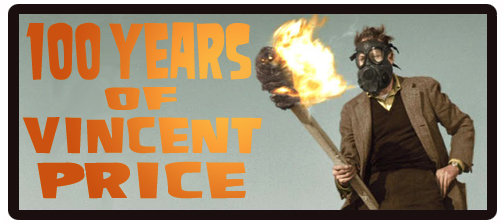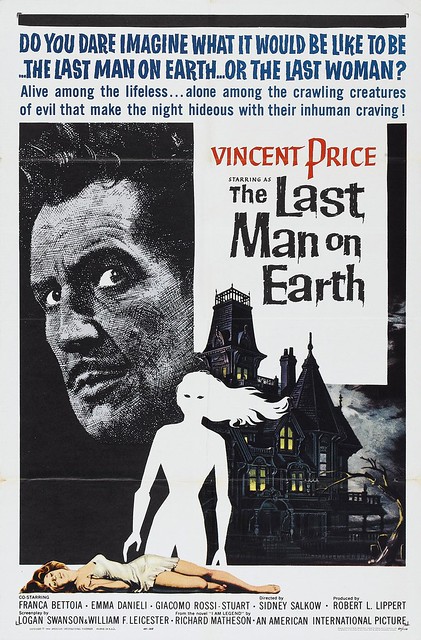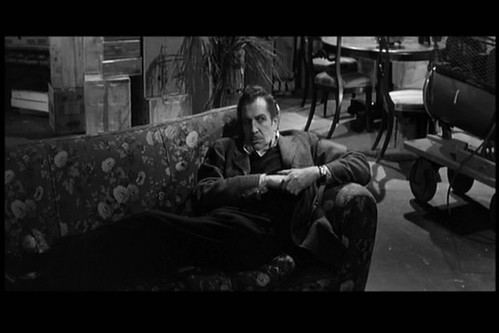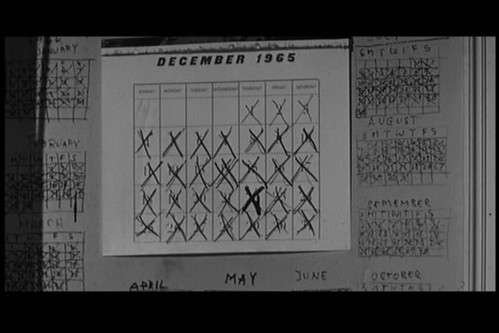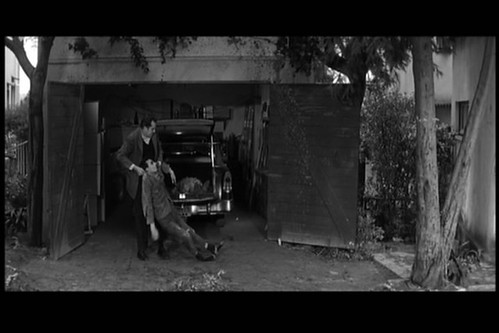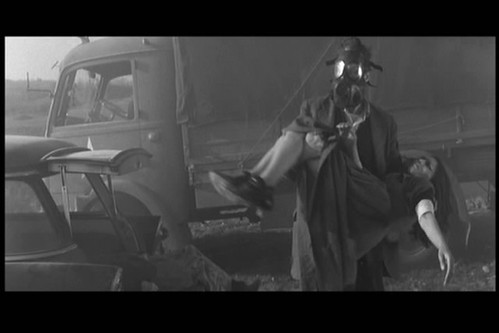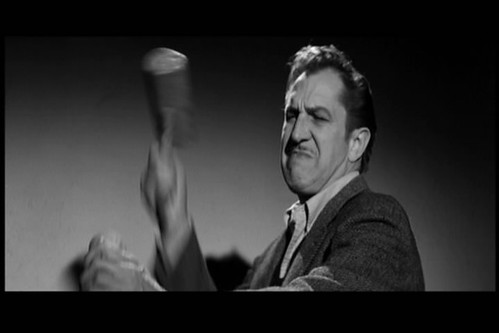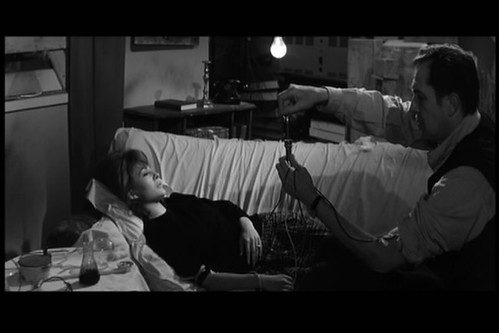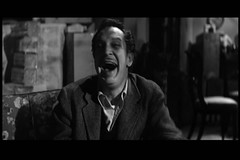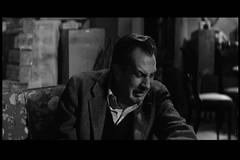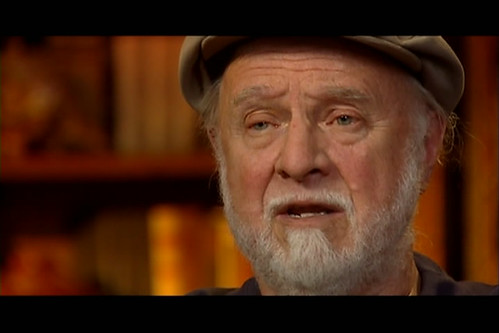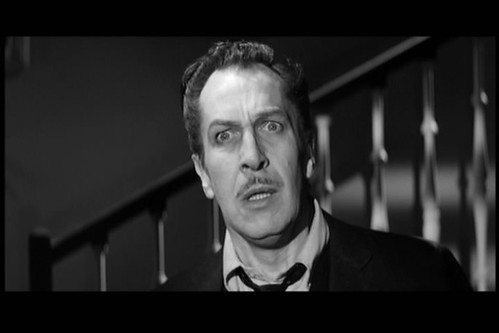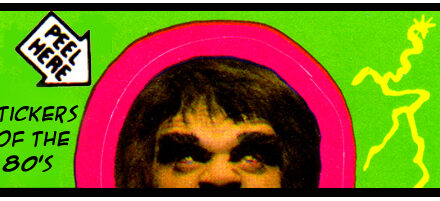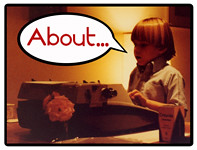So continuing on with the Vincentennial celebrations, today I wanted to take a look at my favorite Price film, The Last Man on Earth…
For those not familiar, the flick is based on a novella by Richard Matheson titled I Am Legend, and follows the story of Dr. Robert Morgan (Robert Neville in the novella), the seemingly last healthy and living man on Earth after a virus sweeps throughout the world first killing and then reanimating humanity. In the novella, and to a lesser extent the film, the virus turns the populace into vampires. Morgan (Vincent Price), spends his days hunting down and killing these undead monstrosities, clearing his city, block by block, and house by house. At night, he holes up in his home, barricaded from the world listening to records to drown out the din of the hungry undead beating on his doors and windows, the hordes screaming for him to come out and join them…
As we enter the story, Morgan has been at his vampire hunting for well into three years and is reaching the breaking point. Loneliness, apathy, and ennui are tearing at his mind as he tries to keep his cool and repeat the same horrible day over and over. Carving and sharpening stakes, checking on supplies, keeping generators running, seeking out fresh garlic and mirrors, and dealing with the undead. He marks the days on handwritten calendars on the walls while brewing his morning coffee and then checking his intricate city maps to see where his hunting left off the day prior.
What I really love about this film is that it’s a very clear bridge between the gothic and campy horror of studios like Universal and Hammer, and the independent realistic horror boom of the late 60s and 70s (films like Night of the Living Dead and Texas Chainsaw Massacre.) For Price, this is a vast departure, at least where his typically horror output is concerned. The tone of the film is much darker and more nihilistic than the majority of the horror that came before it, and it’s strikingly personal due to the diary-like aspect of the original source material and the heavy use of narration in the final film. Much like a similar film (in tone at least) The Flesh and the Fiends, which was released just a few years earlier, the depiction realistic corpses on screen is quite disturbing. Seeing bodies drug and heaped in piles wasn’t the standard for horror at the time for sure…
Similarly, watching as Morgan gathers up the lifeless corpses of extinguished vampires so that he can cart them down to a massive pit filled with a constant pire of charred remains is quite ghastly. This is heightened by Morgan fitting himself with a gas mask so that he can withstand the smoke and fumes of the burning dead…
Another aspect of this film that I really love is the scientific approach it takes to dealing with the vampire mythos. Matheson’s been quoted as saying that when he worked on the book he wanted to make the creatures as realistic as possible by taking the little aspects and finding some factual reasoning as to why they were present. So with the idea of killing a vampire with a stake, it wasn’t so much about piercing the heart in some sort of mystical and iconic way, but rather piercing the skin, breaking open the sealed human body and exposing the virus to the open air which destroys it. In the novel it didn’t matter where you staked a vampire, or with what as long as you exposed the virus to the elements and destroyed it and the body it kept alive.
Ultimately this leads Morgan to discovering that he himself is the cure to this “disease” of vampirism. After meeting up with who he believes is another survivor, Morgan gives the lady a blood transfusion curing her of her condition. This was no doubt very influential in another of my favorite horror films, Near Dark, where Kathryn Bigelow uses the same concept to cure fledgling vampires…
I alao think that Price does a remarkable job at portraying a man on the very edge of sanity. Watching him go from laughter to weeping and back again is completely believable and not nearly as hammy as the screenshots below might make it seem. It might not be as vivid a loud of a performance as Chuck Heston would give a few years later when he helped adapt the story a second time for the screen (in the Omega Man), but it’s just as entertaining.
The story has been adapted three times in the past 50 years, the third of which was the accurately titled I Am Legend, but The Last Man on Earth is by far the closest to the original source and un my opinion the best by far. Unfortunately, Matheson doesn’t agree. Even though he wrote for Price a number of times during their communal time with American International Pictures, Matheson felt that Price was miscast and that the film strayed too far from his story. Even though he wrote the main draft of the screenplay, he would request to be credited under an alias to distance himself with the project.
It’s a pity because I think at the end of the day The Last Man on Earth is probably one of Vincent Price’s best performances and is well worth examination…
Anyway, come back tomorrow for more mask tomfoolery, and if you’re looking for a ton of Halloween content all through the month of October, make sure to stop on by the official Countdown to Halloween site and check out the list of participating blogs for 2011. You’ll be glad you did!

